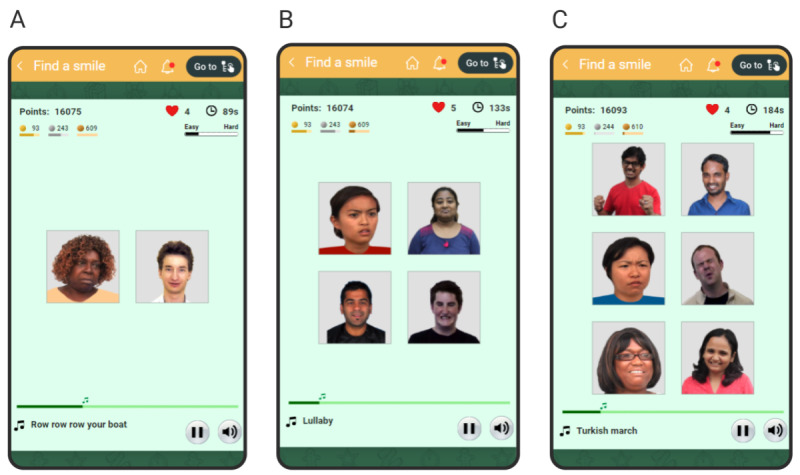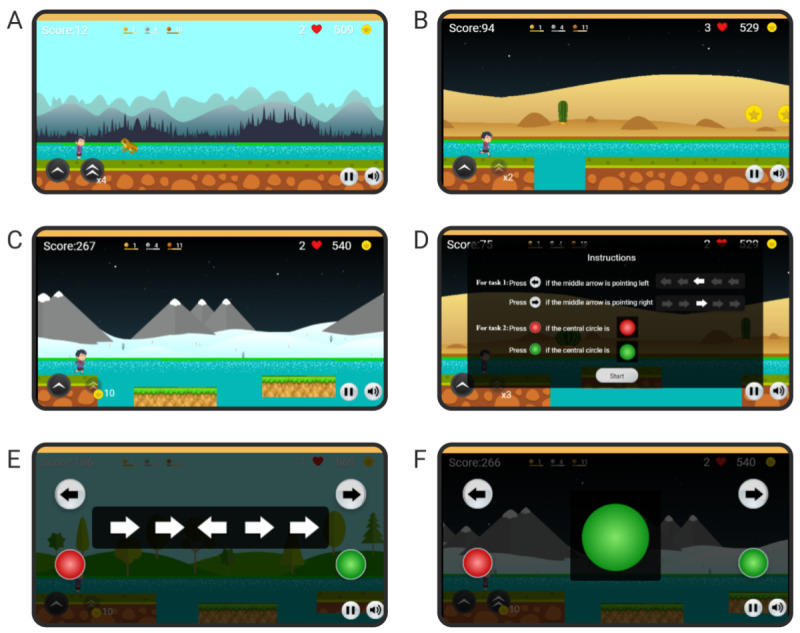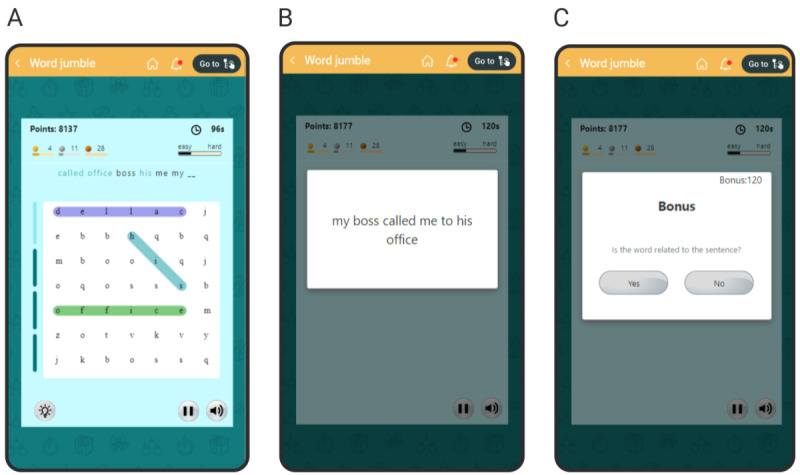基于认知偏差修正和习得性无助范式的严肃游戏治疗抑郁症:设计与可接受性研究。
IF 3.8
2区 医学
Q1 HEALTH CARE SCIENCES & SERVICES
引用次数: 1
摘要
背景:抑郁症是一种使人衰弱的精神健康障碍,治疗缺口很大。近年来,弥合这一治疗差距的数字干预措施激增。这些干预大多是基于计算机化的认知行为疗法。尽管基于计算机认知行为疗法的干预有效,但它们的吸收率很低,辍学率很高。认知偏差修正(CBM)范式为抑郁症的数字干预提供了一种补充方法。然而,据报道,基于CBM范式的干预措施是重复和无聊的。目的:在本文中,我们描述了基于CBM范式和习得性无助范式的严肃游戏的概念化、设计和可接受性。方法:我们检索了文献中被证明对减轻抑郁症状有效的CBM范式。对于每一种CBM范例,我们都构想了如何创造一款游戏,使游戏玩法具有吸引力,同时积极的治疗成分保持不变。结果:我们基于CBM范式和习得性无助范式开发了5款严肃游戏。这些游戏包含各种游戏化的核心元素,如目标、挑战、反馈、奖励、进度和乐趣。总的来说,这两款游戏获得了15名用户的好评。结论:这些游戏可能有助于提高计算机干预抑郁症的有效性和参与度。本文章由计算机程序翻译,如有差异,请以英文原文为准。



Serious Games Based on Cognitive Bias Modification and Learned Helplessness Paradigms for the Treatment of Depression: Design and Acceptability Study.
Background Depression is a debilitating mental health disorder, with a large treatment gap. Recent years have seen a surge in digital interventions to bridge this treatment gap. Most of these interventions are based on computerized cognitive behavioral therapy. Despite the efficacy of computerized cognitive behavioral therapy–based interventions, their uptake is low and dropout rates are high. Cognitive bias modification (CBM) paradigms provide a complementary approach to digital interventions for depression. However, interventions based on CBM paradigms have been reported to be repetitive and boring. Objective In this paper, we described the conceptualization, design, and acceptability of serious games based on CBM paradigms and the learned helplessness paradigm. Methods We searched the literature for CBM paradigms that were shown to be effective in reducing depressive symptoms. For each of the CBM paradigms, we ideated how to create a game so that the gameplay was engaging while the active therapeutic component remained unchanged. Results We developed 5 serious games based on the CBM paradigms and the learned helplessness paradigm. The games include various core elements of gamification, such as goals, challenges, feedback, rewards, progress, and fun. Overall, the games received positive acceptability ratings from 15 users. Conclusions These games may help improve the effectiveness and engagement levels of computerized interventions for depression.
求助全文
通过发布文献求助,成功后即可免费获取论文全文。
去求助
来源期刊

JMIR Serious Games
Medicine-Rehabilitation
CiteScore
7.30
自引率
10.00%
发文量
91
审稿时长
12 weeks
期刊介绍:
JMIR Serious Games (JSG, ISSN 2291-9279) is a sister journal of the Journal of Medical Internet Research (JMIR), one of the most cited journals in health informatics (Impact Factor 2016: 5.175). JSG has a projected impact factor (2016) of 3.32. JSG is a multidisciplinary journal devoted to computer/web/mobile applications that incorporate elements of gaming to solve serious problems such as health education/promotion, teaching and education, or social change.The journal also considers commentary and research in the fields of video games violence and video games addiction.
 求助内容:
求助内容: 应助结果提醒方式:
应助结果提醒方式:


